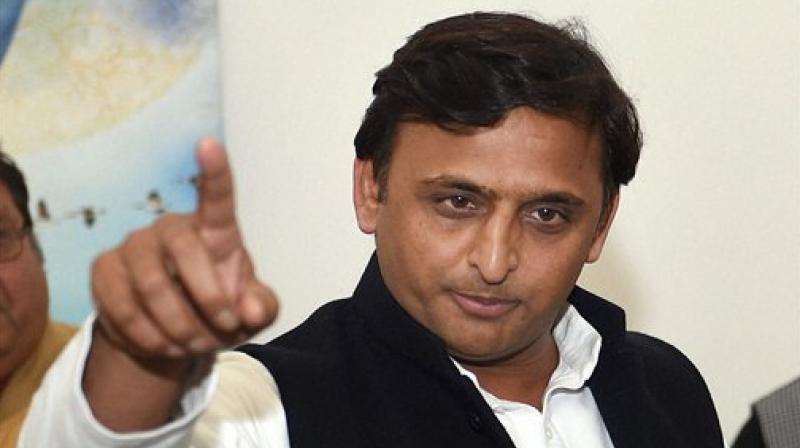SP-Cong tie-up: Too early to say anything

In the end, and after kinetic brinkmanship over seat-sharing, the Samajwadi Party of Uttar Pradesh, the state’s ruling party, and the Congress, which is a pale shadow of its old self but can still muster around 10 per cent of the vote which can make all the difference in a tight situation, decided to strike a pre-poll alliance on Sunday. On the “secular” side of the political divide in North India, pre-election electoral teaming up of parties has hardly been the norm in a long time, although the last state polls in Bihar threw up such a joint effort which easily prevailed in the end. But even there, it was seen as a freak event, intended only to stop the BJP which had gained much ground in the wake of the 2014 Lok Sabha polls under Narendra Modi’s charismatic leadership.
When Bihar results showed that a carefully crafted secular grouping could easily trounce BJP, hopes were raised for Uttar Pradesh also. But pundits thought this unlikely. It was thought that not only the ruling SP, but also BSP were strong regional parties that could potentially win on their own steam and would not concede seats to a potential ally. It is to the credit of chief minister Akhilesh Yadav who understood the short-sightedness rooted in such bravado, specially in an anti-incumbency situation for himself. This could be a lesson taken from the “Bihar model”. Indeed, it was the Congress, hardly a major force that showed too much aggression in bargaining for seats.
Against the wishes of the SP old guard led by his father and uncle, the CM showed interest in the Congress from the start, knowing the weaknesses on his own side. On the other hand, party patriarch Mulayam Singh has always viewed Congress as a long-term threat on the secular side, although that party lacks a caste or religion identity unlike other parties outside the Left. The real meaning of a pre-poll alliance is a coming together of minds on ideological issues as well. This potential has not been realised in Bihar. In UP, it is too early to say what will happen. Much will depend on how the allies conduct themselves, and whether they work for each other’s win or not in order to gain two objectives: the return of the present CM to power although in alliance format this time round, and keeping the BJP at bay in this election as the implications of this are likely to influence the chessboard of national politics.

